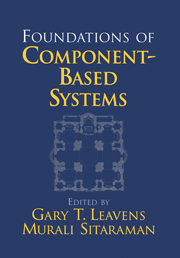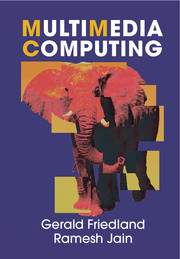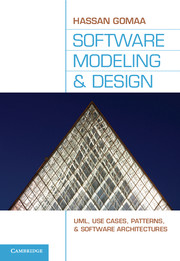Formal Methods for Distributed Processing
Originally published in 2002, this book presents techniques in the application of formal methods to object-based distributed systems. A major theme of the book is how to formally handle the requirements arising from OO distributed systems, such as dynamic reconfiguration, encapsulation, subtyping, inheritance, and real-time aspects. These may be supported either by enhancing existing notations, such as UML, LOTOS, SDL and Z, or by defining fresh notations, such as Actors, Pi-calculus and Ambients. The major specification notations and modelling techniques are introduced and compared by leading researchers. The book also includes a description of approaches to the specification of non-functional requirements, and a discussion of security issues. Researchers and practitioners in software design, object-oriented computing, distributed systems, and telecommunications systems will gain an appreciation of the relationships between the major areas of concerns and learn how the use of object-oriented based formal methods provides workable solutions.
- Introduces and compares the major specification notations and modelling techniques
- Describes the specification of non-functional requirements needed in the specification of multimedia systems
- Contributors include many of the leading researchers in the field, e.g. Gul Agha, Aki Yonezawa, Jeanette Wing, Barbara Liskov
Product details
December 2011Paperback
9780521168755
492 pages
254 × 178 × 25 mm
0.85kg
Available
Table of Contents
- Preface
- Part I. Object-Oriented Distributed Systems:
- 1. Issues in distributed systems P. F. Linington
- 2. Distributed systems, an ODP perspective P. F. Linington
- 3. Issues in formal methods H. Bowman and J. Derrick
- Part II. Specification Notations:
- 4. Finite state machine based: SDL R. O. Sinnott and D. Hogrefe
- 5. Process calculi: E-LOTOS T. Robles, G. Huecas, J. Quemada, A. Verdejo and L. F. Llana-Dìaz
- 6. State-based approaches: from Z to object-Z G. Smith
- 7. The united modelling language S. Kent
- Part III. Dynamic Reconfiguration:
- 8. Actors: a model for reasoning about open distributed systems G. A. Agha, P. Thati and R. Ziaei
- 9. π-calculi P. Sewell
- 10. Mobile mabients l. Cardelli and A. D. Gordon
- Part IV. Subtyping:
- 11. Subtyping in distributed systems J. Indulska
- 12. Behavioural subtyping using invariants and constraints B. H. Liskov and J. M. Wing
- 13. Behavioural typing for objects and process calculi E. Najm, A. Nimour and J-B. Stefani
- Part V. Concurrent OO Language:
- 14. Reflections in concurrent object-oriented languages H. Masuhara and A. Yonezawa
- 15. Inheritance in concurrent objects C. Laneve
- Part VI. Nonfunctional Requirements:
- 16. Multimedia in the E-LOTOS process algebra G. Leduc
- 17. Specifying and analysing multimedia systems L. Blair and G. Blair
- Part VII. Development Architectures:
- 18. Piccola - a small composition language F. Achermann, M. Lumpe, J.-G. Schneider and O. Nierstrasz
- 19. Specification architectures K. J. Turner and R. O. Sinnott
- 20. Viewpoints modelling H. Bowman and J. Derrick
- Indices.





